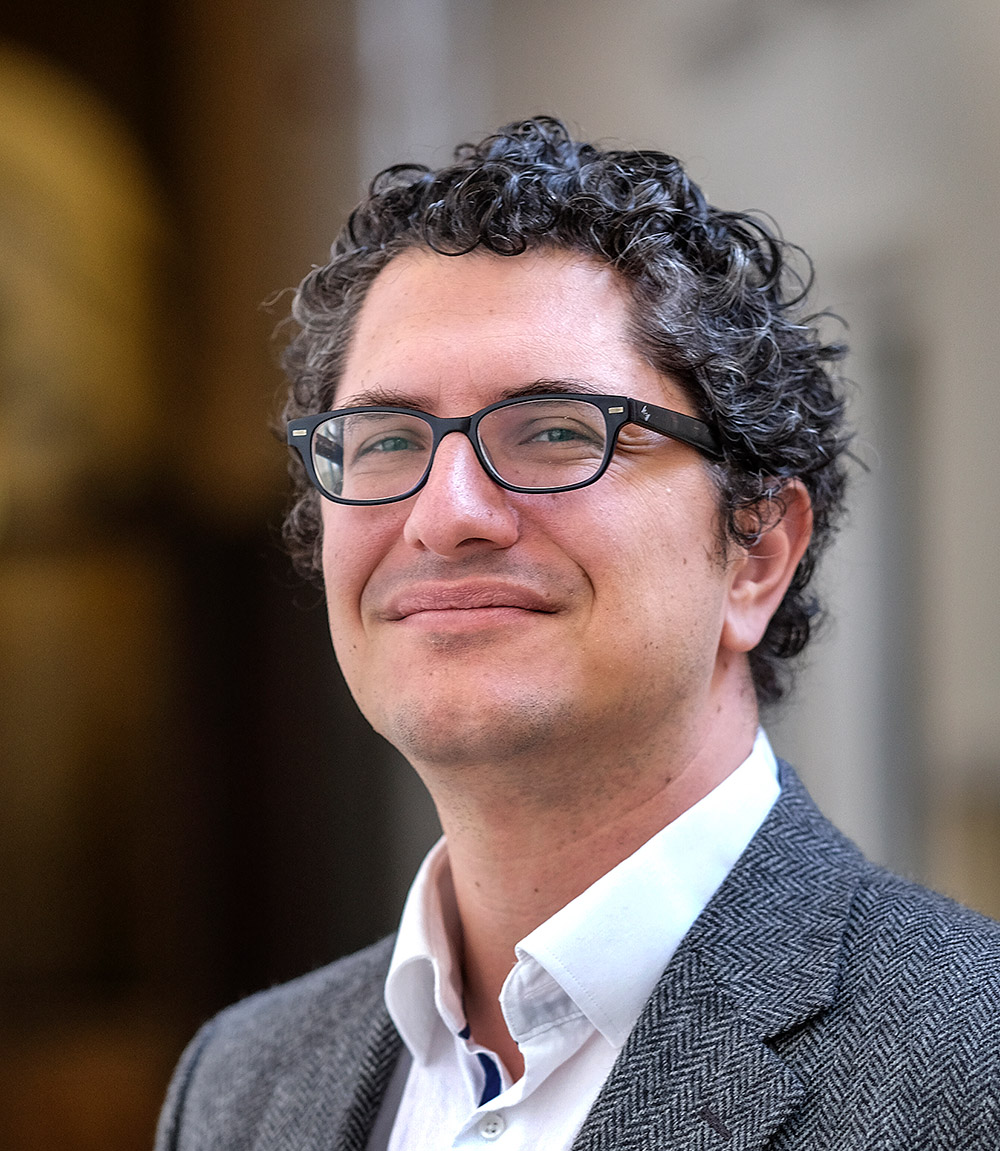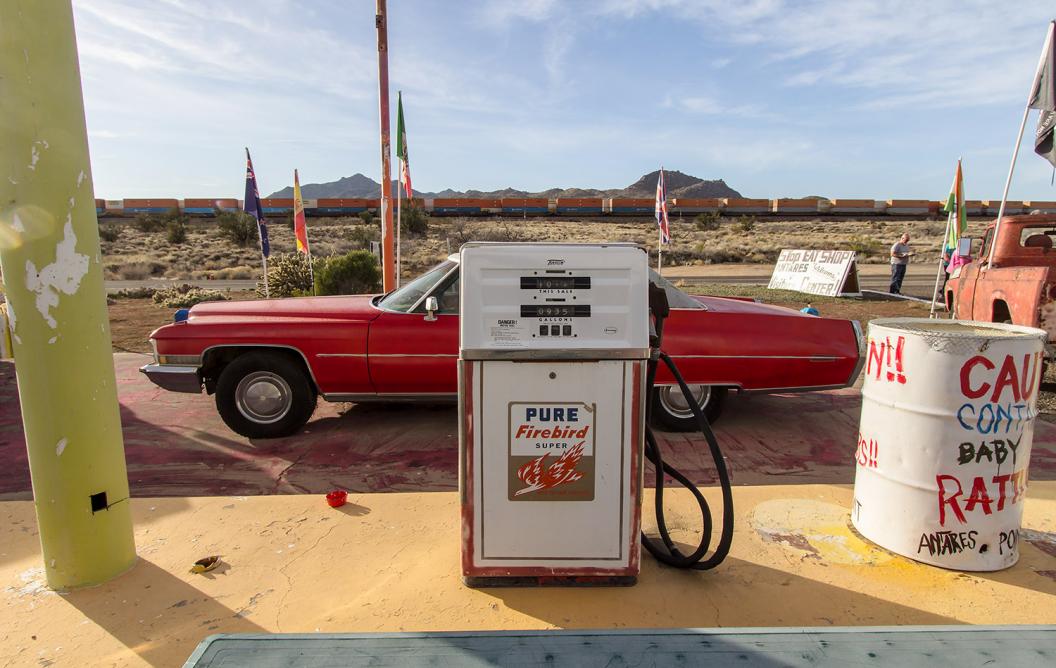Science and the oil industry: an intimate relationship
“If we want a transition to a more sustainable world, and develop new technologies and alternative energy sources to become less dependent on oil, we have to realise that the oil industry itself is deeply intertwined with scientific research and innovation”, says Cyrus Mody, professor of History of Science and Technology. “And that sector is not exactly raring to embrace a sustainable economy.” This, in a nutshell, is the dilemma of the entanglement between science and the oil industry. It is also one of the pillars of Mody’s research on how to deal with sustainability in times of scarcity, for which he recently received a Vici grant from the Dutch Research Council (NWO).
To date, Mody has mainly focused on the history of nanotechnology and related areas. “The oil industry kept popping up in my research, either in the form of funding or in the training of researchers. For example, I studied the early biotech companies that used nanotechnology and genetic engineering. The histories of major biotechnology companies always seemed to have a section buried somewhere in the middle stating that the starting capital mainly came from the oil industry. Just like that, no further comment. This was the case for three of the four major companies in that sector: Amgen, Hybritech and Cetus. So the oil industry had a major influence in biotechnology right from the outset.”
Why did the oil industry invest so much money in biotechnology?
“That’s one of my research questions. My hypothesis is that after the 1973 oil crisis—from which the oil industry greatly profited—they had a lot of money lying around that they were keen to spend. Biotechnology was just emerging at that time, so it seemed like a good investment. It also had the potential to contribute to technologies of interest to the oil industry. For example, genetically engineered organisms were proposed as a way to break up oil shale to make it easier to extract oil from rock. In the 1970s, when oil was scarce, the oil industry was naturally very interested in alternative energy sources, but in the 1980s this interest waned. In the 1990s, many oil companies claimed to be interested in alternatives again, but it’s unclear how sincere this interest was. If you look carefully at their plans, you can see that they were—and still are—planning to extract oil for decades to come.”

Cyrus Mody is professor of History of Science, Technology and Innovation at the Faculty of Arts and Social Sciences. Earlier this year he received a €1.5 million Vici grant from the NWO for his research project ‘Managing scarcity and sustainability: The oil industry, environmentalism, and alternative energy in the age of scarcity’.
This article is part of 'We're Open', a series of stories about the UM community’s many activities during the coronavirus pandemic.

Why does your research focus on the period 1968–86?
“The Club of Rome was founded in 1968, and it’s also when Paul Ehrlich’s The population bomb was published. Awareness of the scarcity of energy sources was growing. In the 1970s it seemed as if change might be possible; that oil would come to play a smaller role in the economy. Politically, too, oil production was under pressure. In many oil-producing countries there was instability due to wars or the oil industry was being nationalised, including in the Middle East, which meant Western oil companies like Exxon, BP and Shell feared losing access to this oil. At the time, they appeared to have no other choice than to look for alternatives.
“The mood changed again over the years as new sources of oil were found, for example in the North Sea and Alaska. In the 1980s political instability and the nationalisation of oil companies proved less of a problem than they were in the early 1970s. OPEC, the organisation of 14 oil-producing countries founded in Iraq in 1960, became a kind of partner to the Western oil companies. And the financial model changed—at least, that’s what I suspect, but it still needs to be investigated. As a result, the oil companies switched their focus from long-term investments to short-term results. Shareholders became less interested in investing in research on new technologies that would only yield returns years later, and opted instead to simply cash in by extracting oil from the ground. All these developments are reflected in the price of oil, which rose during the 1970s, dropped after 1980, and by 1986 was back to its pre-crisis level, the same price as it was in 1973. That’s why I take 1986 as my end point.”
What are you hoping to find in your research?
“I’m hoping to discover all sorts of unexpected things, but what I’m quite certain we’ll be able to demonstrate is that the oil industry is much more involved in the development of new technologies than we think. Not only the oil industry’s money is important for scientific research; so too is the training it provides. Many key researchers have spent part of their careers in the oil industry, which influences what is studied and how it is studied. Usually this influence is seen in a negative light: they undermine the climate debate, they promote climate change denial. They’ve done that too, and we’ll certainly look at that in this project—for example, how the oil industry retreated from and even undermined solar energy in the 1980s. But they’ve also done a great deal of good for science, and contributed to many fantastic discoveries. One of the Nobel Prize winners for chemistry for 2019 has spent much of his life working in the oil industry. He worked on the lithium ion battery, a rechargeable battery often used in mobile phones, laptops and electric vehicles. We have to give them credit for that. But if we want a more sustainable society, with a sound innovation system and research infrastructure, we’ll need to find alternatives to make up for the contributions the oil industry has made.”
Could the corona crisis change things?
“I’d like to be optimistic. But the current drop in demand for oil won’t last forever. Industries will soon go back to their pre-corona levels of oil consumption—not all, but most of them. What I’m concerned about is that the economic recession that’s bound to follow this crisis will have negative consequences for the alternative energy industry, while the oil industry, which has higher cash reserves, will largely be spared. That’s the pessimistic scenario. The optimistic scenario would be that the government puts money into the economy to get the wheels turning again, and in doing so it focuses on the alternative energy industry in order to foster a more sustainable economy. But, for that, you need political will—and it’s unclear whether that will is there.”
Also read
-
Moving orange spots on a yellow background are the first indication that something unusual is taking place in Maastricht's limestone quarry, Sint-Pietersberg. A closer look reveals that these are people clothed in orange vests. They are Maastricht Science Programme students and supervisors.
-
The area on the Sorbonnelaan in the Maastricht neighbourhood of Randwyck looked somewhat bare and remote about two years ago. This was mainly due to the modular and temporary appearance of the student houses that were quickly built there. Meanwhile, the area is increasingly taking on the character...
-
Two Law PhD candidates of the Maastricht Faculty received awards for their doctoral theses during the 21st International Congress of the International Association of the Penal Law in Paris.

